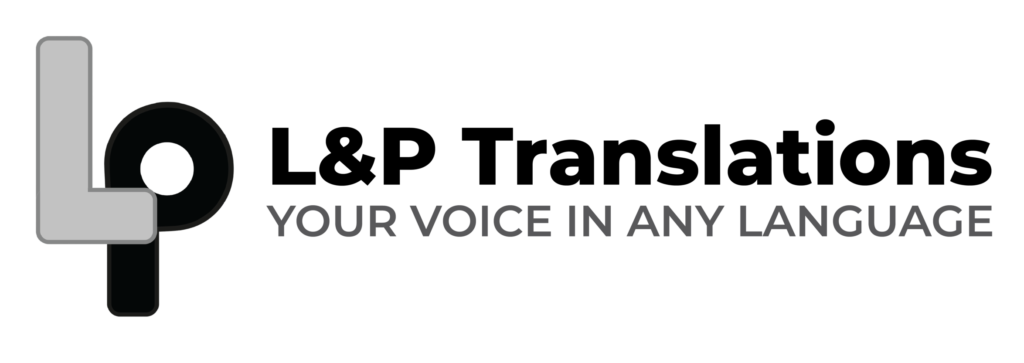Certified translation Translation of legal documents for multilingual markets: a global challenge

The text highlights the importance of certified translation in diverse legal and cultural environments, where accuracy and reliability are paramount. It highlights the challenges and opportunities in legal document translation, especially in multilingual markets such as Singapore, Switzerland and Belgium. Linguistic diversity in countries such as India and Nigeria underscores the need for inclusive policies. The brief highlights the importance of understanding cultural and legal subtleties to ensure sound business relationships and compliance.
Content
- Importance of Certified Translation in Diverse Legal and Cultural Environments
- Challenges and Opportunities in the Translation of Legal Documents
- Linguistic Diversity and its Impact on the Translation of Legal Documents
- Global and Multilingual Markets: Translation Demands and Needs
- The Role of Technology in the Translation of Legal Documents
Importance of Certified Translation in Diverse Legal and Cultural Environments
The interaction between diverse cultures and legal systems highlights the need for accurate and reliable communication at all levels, from commercial contracts to government documents. The translation of these documents involves not only the conversion of words from one language to another, but also the accurate transmission of legal and cultural concepts. Therefore, translation professionals must possess a thorough knowledge of both the languages in question and the legal and cultural systems involved.
In multilingual business environments, where linguistic and cultural diversity is the norm, translators face the constant task of adapting to the particularities of each client and situation. From the translation of commercial contracts in Singapore, where English, Mandarin, Malay and Tamil are intertwined, to the interpretation of intellectual property agreements in Switzerland, with...
Challenges and Opportunities in the Translation of Legal Documents
With its variety of official languages, the field of legal document translation encompasses a wide range of contexts and challenges. This process goes beyond mere word conversion, involving a deep understanding of the linguistic and legal subtleties of each jurisdiction, as well as cultural sensitivity to ensure accuracy and consistency in communication. The ability of translators to navigate this linguistic and legal complexity is critical to facilitating international trade, fostering collaboration between diverse communities and ensuring regulatory compliance in an increasingly interconnected and diversified world.
In addition, the growing economic and commercial integration between countries has increased the demand for translation of legal documents in monolingual markets. Companies looking to expand internationally or establish business relationships with foreign partners need to translate their legal documents to comply with the legal and cultural requirements of the target countries. This underscores the importance of translation as a facilitator of international trade and cooperation between countries.
According to data compiled by the World Bank, there is a marked linguistic diversity in countries such as India, Nigeria, Indonesia and Papua New Guinea, with India leading the way with more than 450 officially recognized languages. This linguistic plurality is not only an outstanding feature of these countries, but also reflects the depth of their cultural richness and the complexity of their societies. This phenomenon encompasses not only a multiplicity of languages, but also a variety of dialects and regional forms of expression, underscoring the diversity and interconnectedness of cultural identities within these nations.
In addition to being a testament to the history and cultural heritage of these countries, this linguistic diversity also presents challenges and opportunities in terms of communication, education and public policy, highlighting the need for an inclusive and equitable approach to address this diversity in all spheres of society.
Linguistic Diversity and its Impact on the Translation of Legal Documents
The linguistic diversity in these countries is manifested not only in a multiplicity of languages, but also in the coexistence of multiple dialects and regional variants within each language. This rich linguistic mosaic creates an environment where communication and cultural interaction intertwine in fascinating ways, enriching the daily lives of millions of people.
This diversity also poses unique challenges and opportunities in legal and governmental arenas. Authorities in these countries must ensure that linguistic plurality is reflected in legislation and public policy, which involves translating and adapting legal documents, commercial contracts and government materials into a wide range of local languages.
This diverse linguistic landscape also presents opportunities for the preservation and revitalization of minority languages, promoting inclusion and respect for different cultural identities within these societies. It also highlights the importance of inclusive language policies that promote multilingualism and linguistic equity in education and access to public services.
Global and Multilingual Markets: Translation Demands and Needs
In the context of global and multilingual markets, there are nations that stand out for both their economic relevance and their linguistic diversity. Singapore, Switzerland, Belgium, Canada and South Africa are prominent examples. Singapore, in particular, stands as a global financial center that is home to four official languages: English, Mandarin, Malay and Tamil. This linguistic diversity reflects not only its colonial past, but also its strategic position as a gateway to emerging Asian markets.
The translation of legal documents in these multilingual markets covers a wide range of languages and specialized areas of law. From commercial contracts to government documents, intellectual property agreements to employment contracts, the demand for translation in these contexts is constant and diverse. Accuracy and attention to detail in the translation of these documents are critical, as any error could have significant legal implications.
On the other hand, the complexity of these multilingual markets also presents challenges related to diversity management and inclusion. The interaction between different cultures and legal systems requires a sensitive approach that values and respects differences, while seeking points of convergence and mutual understanding.
In this sense, law firms and legal professionals must not only master the technical aspects of translation and interpreting, but also cultivate intercultural skills and intercultural communication competencies. This involves not only understanding linguistic differences, but also the social norms, cultural values and power dynamics that can influence the interpretation of legal documents.
Also, in an increasingly interconnected world, technology plays a crucial role in translation and interpreting in multilingual markets. Machine translation tools, artificial intelligence and terminology management software are resources that can facilitate the translation process and improve efficiency, but must always be complemented by human supervision and review to ensure accuracy and consistency in the message.
The Role of Technology in the Translation of Legal Documents
The need for legal document translation is constantly increasing in the dynamic landscape of interaction between monolingual and multilingual markets. While monolingual markets, which mostly operate in a single language, often find themselves tasked with translating legal documents in order to collaborate with international business partners or comply with regulatory requirements in foreign jurisdictions. For example, a U.S.-based company looking to expand into the Chinese market will need to translate its business contracts into Mandarin to comply with local laws and establish strong business relationships.
In this context, the predominant languages in multilingual markets are those that exert significant economic, political and cultural influence. English, as the lingua franca of international commerce, is widely required in the translation of legal documents in multilingual markets. Mandarin, due to China's economic boom, is also experiencing high demand in the translation of legal documents in Asian markets. In addition, the official languages of the relevant countries, such as French in Belgium or German in Switzerland, have a notable relevance in the translation of legal documents within these specific contexts.
It is important to note that the translation of legal documents in these multilingual environments involves not only the literal conversion from one language to another, but also the accurate interpretation of legal and cultural terms to ensure consistency and legal validity in all relevant jurisdictions. This complex task requires an in-depth knowledge of both the languages involved and the associated legal and cultural regulations, underscoring the importance of having qualified and experienced legal translation professionals to ensure optimal results in this highly specialized field.
This chart illustrates the linguistic diversity and specific translation needs of legal documents in various multilingual markets. Translation accuracy and reliability in these contexts are critical to facilitating international trade, fostering cooperation between nations and ensuring legal compliance in diverse and complex legal environments.
Beyond mere linguistic translation, these demands highlight the importance of understanding the cultural and legal subtleties of each particular market. This involves not only translating words, but also accurately conveying the meaning and intent behind legal documents, adapting them appropriately to the regulations and legal conventions of each country or region.
In a globalized world, where business interactions transcend linguistic and cultural barriers, the translation of legal documents emerges as an essential component of building strong business relationships and complying with local and international legal regulations. This linguistic and legal diversity presents both challenges and opportunities for businesses and legal professionals operating in these dynamic and multifaceted environments.
Glossary
- Certified Translation: Translation process carried out by a certified translator that guarantees the accuracy and legal validity of the document.
- Multilingualism: Coexistence of several languages in a region or country.
- Jurisdiction: Geographic or political area in which the law applies.
- Lingua Franca: Language commonly used for communication between people who speak different mother tongues.
- Legal Regulations: Rules and regulations established by governmental authorities.



